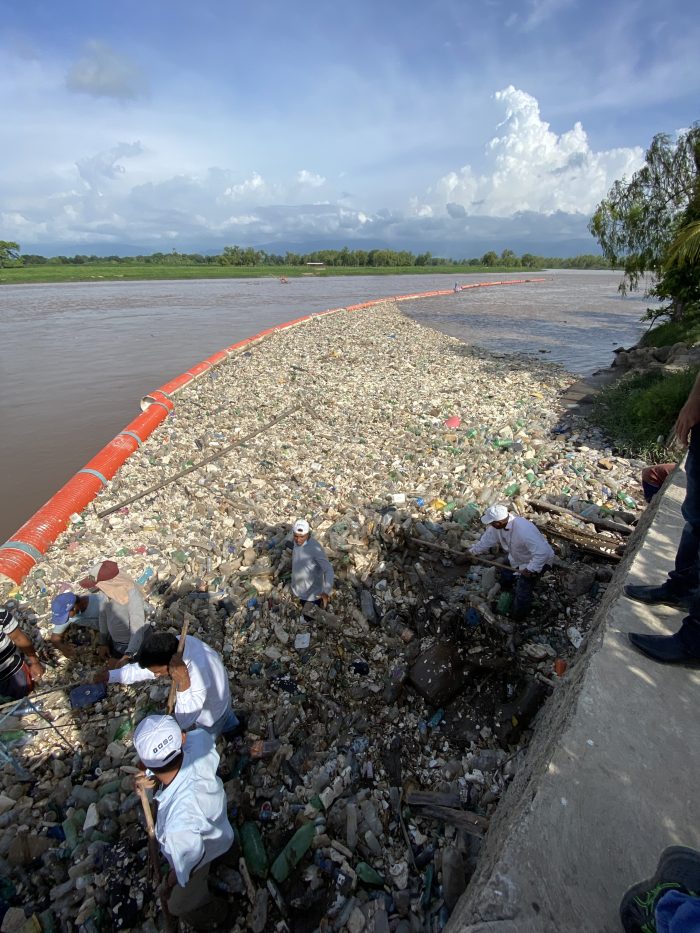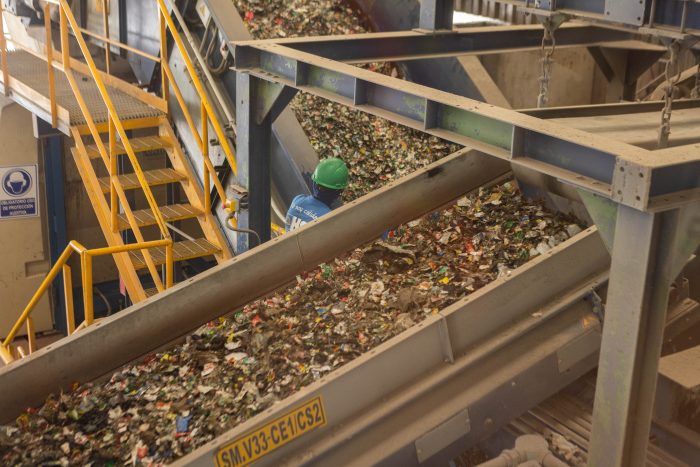
In 2023, a new alternative fuels feeding system that allows the co-processing of tires began to operate at San Gabriel Plant, adding to the already installed co-processing capacity of San Miguel Plant. In 2022 and so far in 2023, both plants together have co-processed 25,228.03 tons of waste, generating a total of approximately 695 TJ of energy.
Of the total amount of energy generated from alternative fuels, 22 TJ came from the co-processing of municipal waste recovered from the Motagua River, one of the most important and extensive rivers in Guatemala, and also, unfortunately, one of the most polluted in the world.
This project has been considered an example in the region, since it has made it possible to learn about the benefits of co-processing, generating sustainable and viable solutions for the integral management of solid waste.

In addition to the reduction of emissions that the co-processing allows, this project prevented tons of solid waste from entering the ocean, having a direct impact in the proper disposal of waste, the adequate management of water resources and the recovery of polluted water bodies. This demonstrates that an adequately oriented decarbonisation strategy can impact several economic and social development targets, according to the specific needs and circumstances of each country.